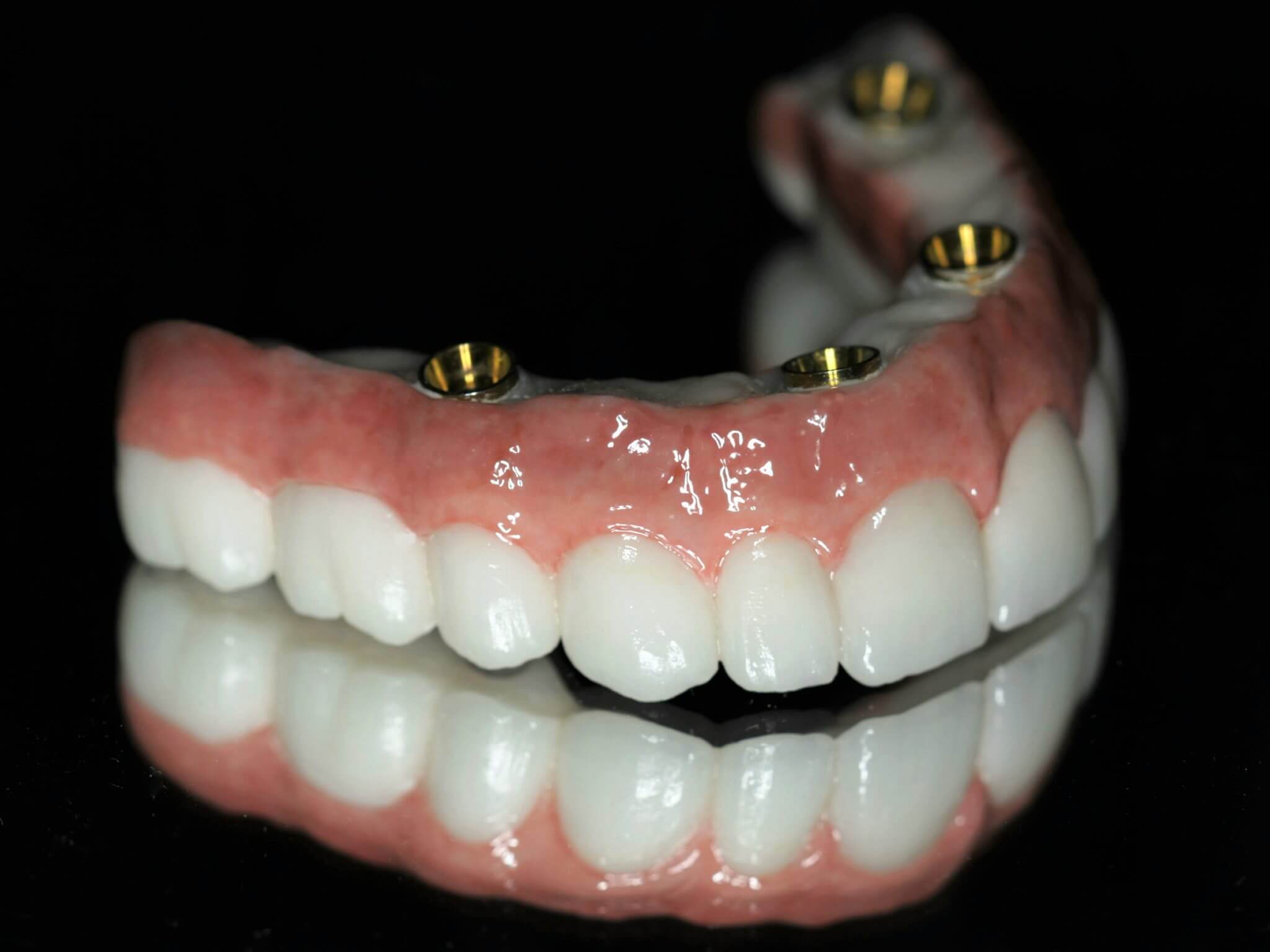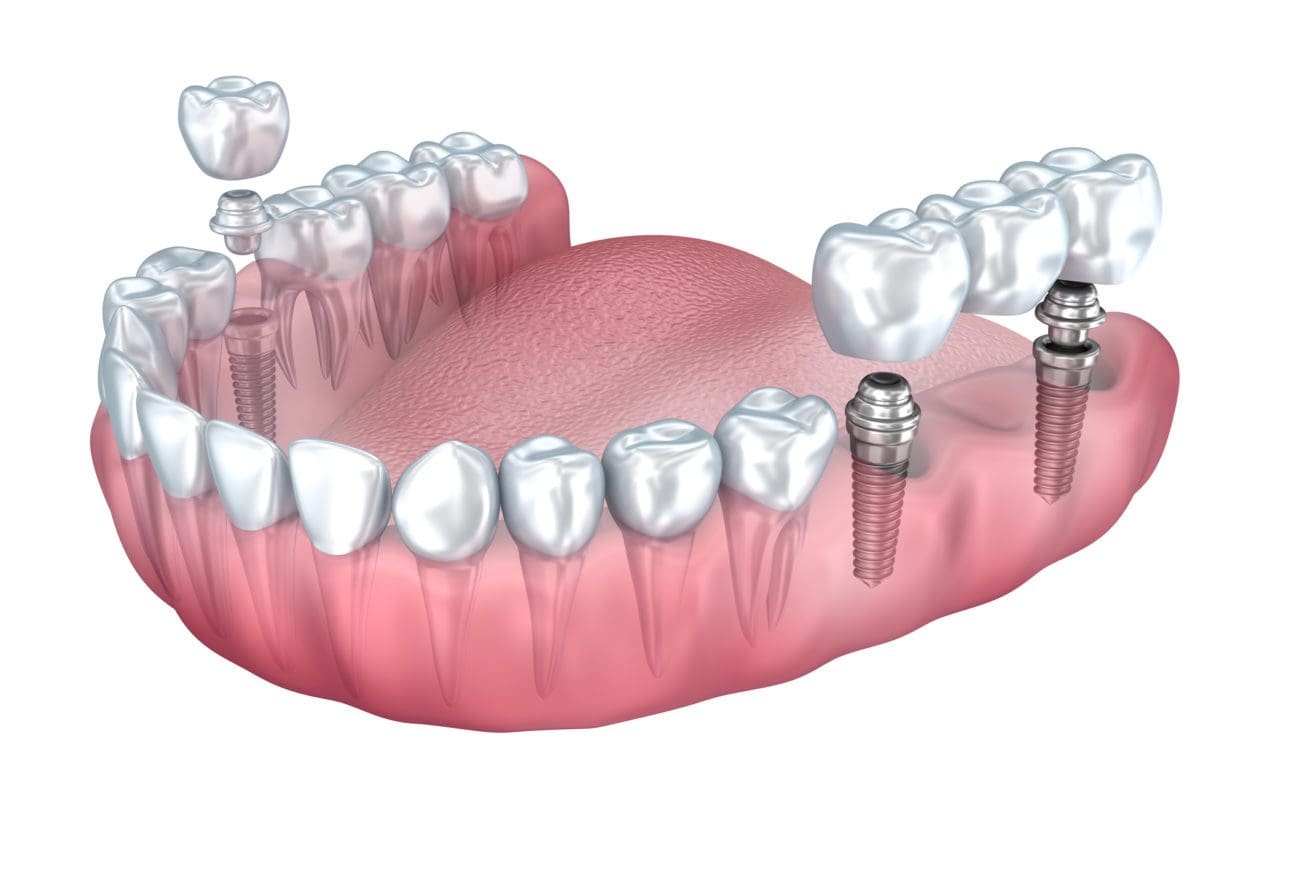The Main Principles Of Dental Sense
The Main Principles Of Dental Sense
Blog Article
Getting My Dental Sense To Work
Table of ContentsNot known Facts About Dental Sense5 Easy Facts About Dental Sense ShownThe 10-Minute Rule for Dental SenseWhat Does Dental Sense Do?
are medical tools surgically implanted right into the jaw to restore a person's ability to chew or their appearance. They provide assistance for artificial (phony) teeth, such as crowns, bridges, or dentures. When a tooth is lost because of injury or disease, a person can experience issues such as rapid bone loss, faulty speech, or changes to chewing patterns that result in pain.Oral implant systems contain an oral implant body and dental implant abutment and may also consist of a joint addiction screw. Wisdom tooth cavity. The dental implant body is surgically placed in the jawbone instead of the tooth's origin. The oral implant abutment is typically connected to the dental implant body by the abutment fixation screw and expands through gum tissues right into the mouth to support the connected fabricated teeth
(https://profile.hatena.ne.jp/dentalsense1/)Structure of The Dental Implant System selecting dental implants, speak to your oral copyright about the potential advantages and risks, and whether you are a candidate for the treatment. Points to consider: Your total health is an important element in determining whether you are a great prospect for oral implants, exactly how long it will certainly require to recover, and how much time the implant might remain in area.
Smoking cigarettes may affect the recovery process and decrease the lasting success of the dental implant. The healing procedure for the dental implant body may take numerous months or longer, during which time you normally have a momentary abutment in place of the tooth. the dental implant procedure: Carefully follow the oral hygiene directions provided to you by your dental service provider.
Some Known Questions About Dental Sense.
Implant failure can result in the demand for one more surgery to take care of or change the dental implant system. Brings back the capacity to chew Restores aesthetic look Assists maintain the jawbone from diminishing due to bone loss Maintains the wellness of the surrounding bone and gums Helps maintain nearby (nearby) teeth secure Boosts lifestyle Damage to bordering natural teeth throughout implant placement Injury to the surrounding tissues throughout surgery, such as sinus opening Injury throughout surgical treatment (as an example, fracture of surrounding jawbone) Inadequate function, such as seeming like the teeth do not bite together normally A feeling that the tooth hangs or turning in location resulting from an abutment screw loosening up Implant body failing (looseness of the dental implant body) due to systemic infection, which might be more probable in patients with unrestrained diabetes mellitus because of local infection in bone and gums sustaining the dental implant body as a result of delayed recovery, which may be more most likely in people who smoke Trouble cleansing the gum look at here now tissues around the dental implant, resulting in poor dental hygiene Neglected gum illness Post-surgical tingling as a result of nerve impingement or damage Always inform wellness treatment providers and imaging specialists that you have oral implants prior to any type of magnetic resonance imaging (MRI) or x-ray procedures.
FDA is not familiar with any damaging events reported for MRI or x-ray treatments with dental implants. Dental implants systems are generally made of products that follow international agreement criteria of the International Company for Standardization (ISO) or ASTM International. These standards have information of what makes a safe product.

An oral implant is a framework that changes a missing tooth. With screw-like gadgets, the surgeon inserts a dental implant right into the jawbone, and it acts as an anchor for an artificial tooth, called a crown.
The Of Dental Sense
Some individuals are not qualified for dental implant surgical treatment. It is for dental surgeons to operate people with: acute illnessuncontrollable metabolic diseasebone or soft cells illness or infectionIf these issues are resolved, a person can have the surgical procedure. In, oral surgeons abstain from operating people with: If individuals with any of the above go through dental implant surgical treatment, there is a higher risk of the dental implant falling short.

Oral dental implant surgical procedure is a personalized procedure. Give you time to heal. Attach the article and last crown, bridge or denture.
Next off, your surgeon will very carefully position the dental implant right into your jaw. If your implant is near the front of your mouth, your dentist will certainly make a short-term tooth for you to put on up until you heal.
How Dental Sense can Save You Time, Stress, and Money.
Your company can tell you what to anticipate in your circumstance. Throughout the healing stage, your jawbone must fuse to the oral implant. This process, called osseointegration, is critical for security and lasting success. This process can take anywhere from 3 to 9 months. In many cases, it might take much longer.
As soon as your implant heals, your dental practitioner can affix the joint (small port article) and your final restoration (crown, bridge or denture). This generally takes concerning one hour to finish and may call for a second minor surgical treatment. You shouldn't feel any type of pain during your oral implant procedure since your service provider will use medicine to numb your gum tissues.
Report this page